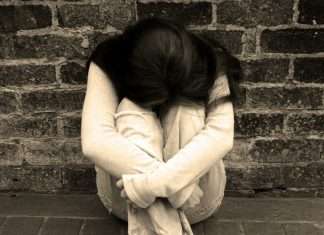Hollywood is increasingly portraying motherhood not as a blissful experience, but as a potential descent into psychological distress and loss of identity. Recent films like Nightbitch, If I Had Legs I’d Kick You, and Die My Love are part of a growing trend of postpartum thrillers that offer a starkly honest, and often unsettling, depiction of the challenges facing modern mothers. These films go beyond romanticized portrayals to explore the feelings of isolation, frustration, and loss of self that can accompany parenthood, especially within a societal context that often lacks adequate support.
The Rise of Postpartum Thrillers
Die My Love, starring Jennifer Lawrence, is the latest film to join this wave. Lawrence’s performance as Grace, a new mother grappling with postpartum depression, has garnered widespread praise, and is sure to spark further conversations. The film follows Grace and her partner, Jackson (Robert Pattinson), as they move to Jackson’s remote hometown, where he will work and she will care for their newborn son. As Jackson becomes increasingly distant, Grace begins to unravel, feeling trapped and losing her sense of self within the confines of her new role.
The trend gained momentum earlier with 2023’s Nightbitch, in which Amy Adams plays a mother who literally transforms into a feral dog as a coping mechanism for overwhelming parental duties, and If I Had Legs I’d Kick You, a harrowing depiction of a Long Island therapist struggling to care for her daughter while battling isolation and mental breakdown. These films share a common theme: motherhood as a force that can strip away a woman’s identity and leave her feeling lost and desperate.
A Societal Reflection
The emergence of these films coincides with a broader societal reckoning regarding the challenges facing parents, particularly mothers. The overturning of Roe v. Wade in June 2022 prompted a surge in “pregnancy body horror” films that explored themes of forced pregnancy and loss of control over one’s body. However, the real horror for many mothers extends beyond pregnancy and childbirth. Abortion access is diminishing across the country, women are leaving the workforce in record numbers due to the high cost of childcare and return-to-office mandates, and even proposals to encourage childbirth are paired with policies that cut vital support for working families.
The disproportionate burden placed on mothers in this environment has not gone unnoticed. Female filmmakers are increasingly using their platforms to confront these realities, moving beyond idealized depictions of motherhood to showcase the raw emotions and psychological toll it can take.
More Than Just Nihilism: Exploring the Spectrum of Motherhood
These films aren’t necessarily advocating for a bleak view of parenthood. Instead, they are reflecting a truth: motherhood is complex. Like any human being, mothers need connection, stimulation, and agency. When these needs are unmet, the consequences can be profound.
Nightbitch ultimately offers a path toward reclaiming identity, with the protagonist finding freedom by embracing her multifaceted self. If I Had Legs I’d Kick You presents a less optimistic resolution, reflecting the often-difficult reality of navigating parenthood under immense pressure. Die My Love captures the visceral frustration and desperation of a woman struggling to maintain her sanity within the confines of motherhood, with moments of dark humor underscoring the overwhelming emotions.
One particularly striking scene in Die My Love, where Grace smashes bathroom products and drags her nails across the wall, powerfully illustrates the pent-up emotions that can result from unmet needs. The scene resonates because it captures the primal urge to release the overwhelming pressure of suppressed frustration—a feeling many parents can relate to.
While the films may depict a spectrum of challenging experiences, they serve as a crucial reminder that motherhood is not solely about joy. Instead, they offer a complex and nuanced portrayal of a fundamental human experience—one that demands recognition, support, and a willingness to confront its darker aspects.
Ultimately, these postpartum thrillers are more than just entertainment; they are a cultural mirror reflecting the anxieties and struggles of modern motherhood, and a call for a society that better supports the women who bear the weight of it.






















